
Find Help
More Items From Ergsy search
-

What are the symptoms of a screw worm infestation?
Relevance: 100%
-
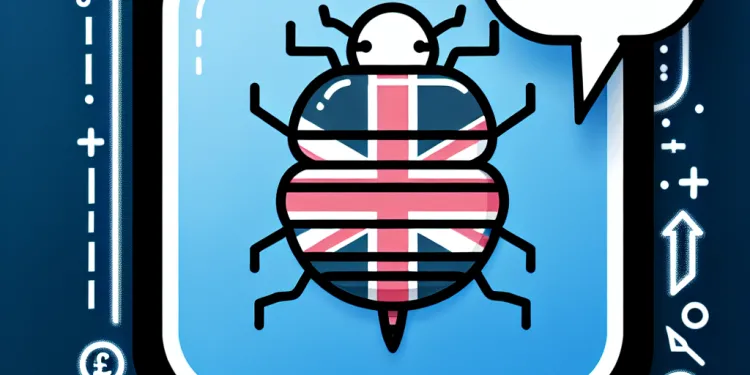
Can screw worm infestations be prevented?
Relevance: 92%
-

How do screw worms infest their hosts?
Relevance: 90%
-

How are screw worm infestations treated?
Relevance: 89%
-
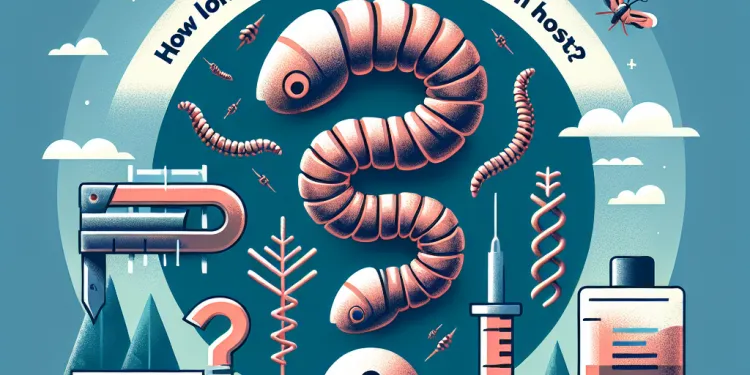
How long do screw worm larvae typically infest a host?
Relevance: 81%
-

What are Screw Worms parasites?
Relevance: 77%
-

Are screw worms dangerous to humans?
Relevance: 76%
-
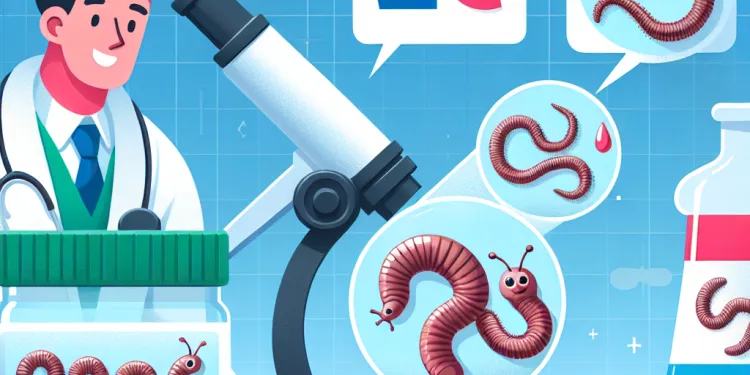
Can screw worms cause zoonotic disease?
Relevance: 74%
-

How do screw worms reproduce?
Relevance: 73%
-

What impact do screw worms have on livestock?
Relevance: 72%
-

Are there any natural predators of screw worms?
Relevance: 70%
-

Where are screw worms found geographically?
Relevance: 69%
-

What methods are used to control screw worm populations?
Relevance: 68%
-

What measures are taken during a screw worm outbreak?
Relevance: 66%
-

Has the screw worm been eradicated in some areas?
Relevance: 64%
-

What species of flies produce screw worms?
Relevance: 63%
-
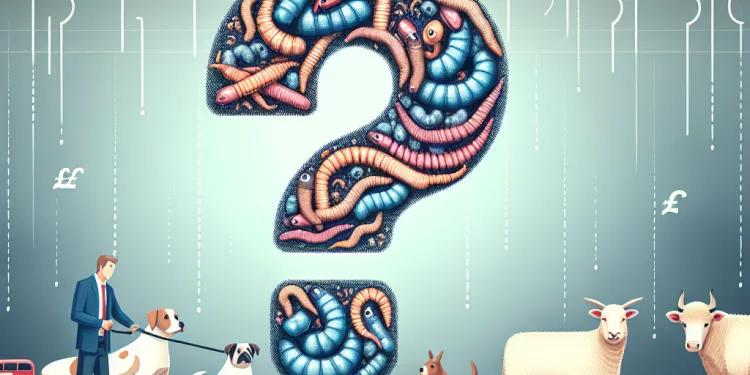
What animals can be affected by screw worms?
Relevance: 47%
-

What economic impact do screw worms have?
Relevance: 46%
-

How can individuals help in the fight against screw worms?
Relevance: 43%
-
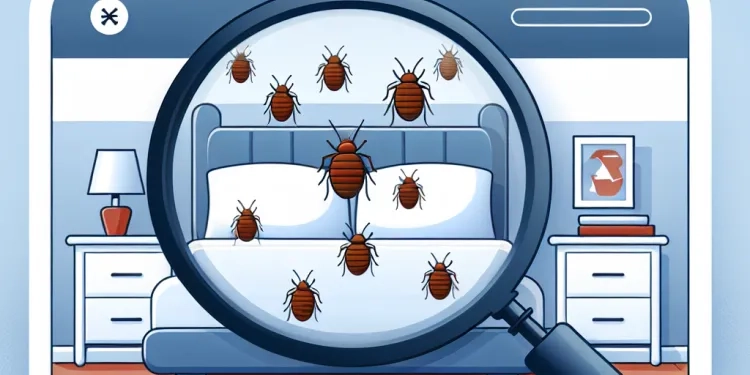
What are the signs of a bed bug infestation?
Relevance: 29%
-

Why is screw worm eradication important?
Relevance: 25%
-

The symptoms of gonorrhoea
Relevance: 14%
-
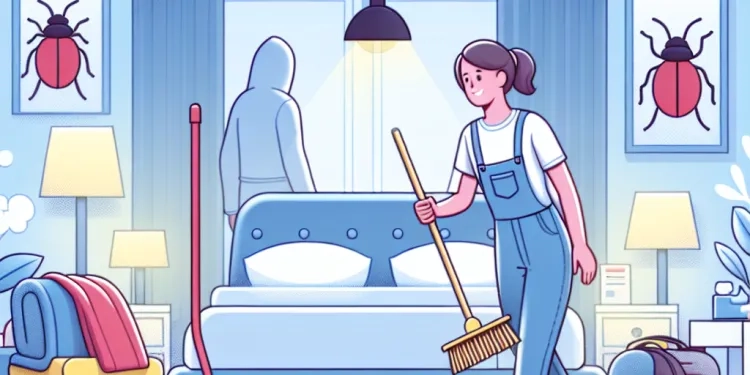
Are bed bugs dangerous?
Relevance: 14%
-

What are the symptoms of norovirus?
Relevance: 14%
-
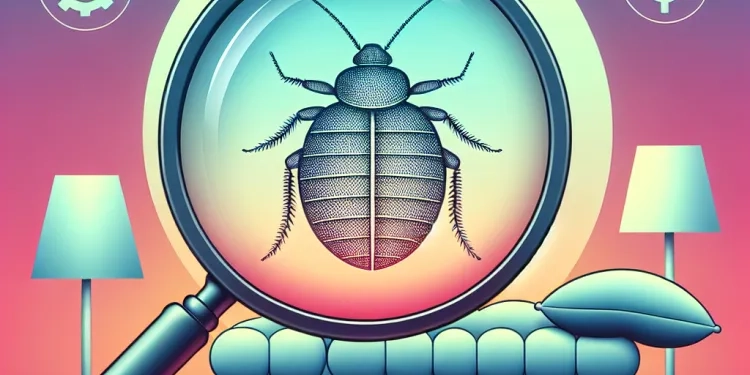
What are bed bugs?
Relevance: 14%
-

What are the symptoms of Rubella?
Relevance: 14%
-

Are there symptoms of an HPV infection?
Relevance: 14%
-

Symptoms of coeliac disease
Relevance: 14%
-

What are the symptoms of measles?
Relevance: 14%
-

What are the symptoms of measles?
Relevance: 14%
-

What are the symptoms of measles?
Relevance: 14%
-

What are the symptoms of SAD?
Relevance: 14%
-

What are the symptoms of chickenpox?
Relevance: 13%
-

What are the symptoms of flu ?
Relevance: 13%
-

What are the symptoms of BPH?
Relevance: 13%
-

What are the symptoms of whiplash?
Relevance: 13%
-

What are the symptoms of hypotony?
Relevance: 13%
-

What are the symptoms of sunburn?
Relevance: 13%
-
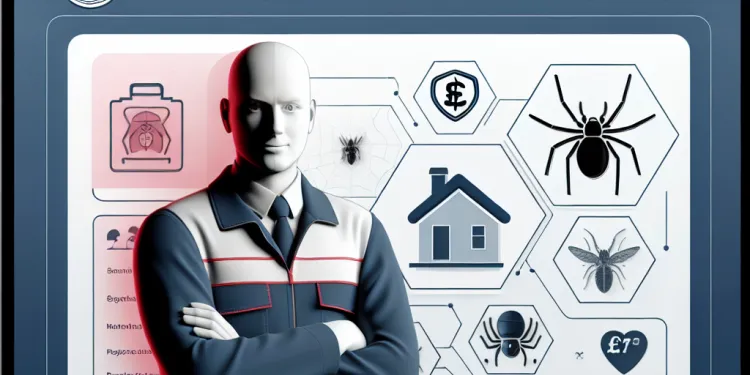
Is professional pest control needed for spiders?
Relevance: 13%
-

Symptoms of flu (influenza)
Relevance: 13%
What Are the Symptoms of a Screw Worm Infestation?
Screw worm infestation is a serious condition that can affect both animals and humans. Recognizing the symptoms early is crucial for effective treatment and minimizing harm. This condition is primarily caused by the larvae of the New World screw worm fly, Cochliomyia hominivorax, which infest living tissue. Though currently eradicated in the United Kingdom, knowledge of these symptoms is important, especially for travelers.
Symptoms in Livestock and Animals
In livestock, such as cattle and sheep, screw worm infestation usually starts with a small wound where the flies lay their eggs. The most notable symptoms include an identifiable foul-smelling discharge from the wound, as the larvae begin to eat into the tissue. Affected animals might show signs of distress, irritation, and discomfort. Frequently, the animals will rub or scratch the affected area, trying to relieve themselves from the constant irritation. The wound appears larger over time and may attract secondary bacterial infections, leading to increased discharge and even more severe tissue damage.
As the infestation progresses, the animals may exhibit signs of systemic illness due to the secondary infections, such as fever, loss of appetite, lethargy, and in severe cases, death if left untreated. Additionally, the maggots may be visibly crawling in and out of the wound, which can be visually striking and alarming for anyone inspecting the animal.
Symptoms in Humans
While not as common, screw worm infestations in humans can occur, particularly in rural or unsanitary conditions. The symptoms in humans similarly start with an infected wound, often a small cut or sore, which becomes the site for egg laying. As the larvae hatch, they burrow into the skin, causing a painful, enlarging ulcer that may be accompanied by a foul odor. The infested area can become red, swollen, and painful to the touch.
Other symptoms include a creeping sensation within the skin, as the larvae are active, and patients might notice visible movement. If the infestation site is near vital areas, such as the eyes or ears, it can lead to more severe health consequences, including potential vision or hearing loss if the infestation is not promptly treated.
Like animals, humans with screw worm infestations may also suffer systemic symptoms if the condition is not addressed, including fever and a generalized feeling of malaise.
Conclusion
Recognizing the symptoms of screw worm infestation is vital, though fortunately rare in the UK. Early detection and medical intervention are key to preventing widespread tissue damage in both animals and humans. Proper wound management and sanitation are essential preventive measures for this condition, especially when traveling to high-risk areas where screw worm may be more prevalent.
What Are the Signs of a Screw Worm Problem?
Screw worm problems are serious and can hurt animals and people. Knowing the signs early helps make treatment work better and stops more harm. Screw worms come from the baby flies of a bug called the New World screw worm fly, Cochliomyia hominivorax. These bugs get into living tissues. Even though they're not in the UK now, it's good to know the signs, mainly if you travel.
Signs in Farm Animals
For animals like cows and sheep, screw worms start with a small cut where the flies lay eggs. The signs are a bad smell from the cut as the worms eat the flesh. Animals can look upset and scratch or rub the sore area because it bothers them. The wound gets bigger and might get more infections with even more bad-smelling liquid.
If it gets worse, animals might get sick from these other infections. They may have a fever, not want to eat, feel tired, and could die if not helped. You might also see the worms moving around in the wound, which can be scary.
Signs in People
Though it’s not common, people can also get screw worms, especially in places with poor sanitation. It starts with a cut or sore where eggs are laid. The worms grow in the skin, causing a painful sore that smells bad. The sore area can also be red, puffy, and hurt when touched.
People might feel the worms moving under the skin, which is creepy. If the worms are near important areas like eyes or ears, it can be very serious. It can even hurt vision or hearing if not treated quickly.
Like animals, people can also feel sick with fever if the screw worms are not dealt with.
Conclusion
It's important to know screw worm signs, even if it’s rare in the UK. Finding it early and getting medical help stops more harm to both animals and people. Keeping cuts clean and safe is key to preventing this problem. This is especially true for places where screw worms are more common.
Frequently Asked Questions
What is screw worm infestation?
Screw worm infestation occurs when the larvae of the screw worm fly infest a wound or opening on a living animal, feeding on the living tissue.
What are the primary symptoms of screw worm infestation?
The primary symptoms include irritation, discharge from the wound, foul odor, and swelling around the site of infestation.
How does a screw worm infestation affect animals?
Screw worm infestation can cause severe tissue damage, secondary infections, and in severe cases, can lead to the death of the host animal.
Can screw worms infest humans?
Screw worms primarily infest animals, but they can also infest humans, particularly in untreated wounds or exposed tissues.
What does a wound infested with screw worms look like?
A screw worm-infested wound may appear swollen, red, and may have larvae or maggots visible within the wound, accompanied by a foul odor.
What behavioral changes might an animal show if infested with screw worms?
An animal with a screw worm infestation may exhibit signs of discomfort, such as restlessness, excessive licking or biting at the wound, and reduced appetite.
Are there any systemic symptoms of screw worm infestation in animals?
In severe cases, animals may show systemic signs such as lethargy, fever, and weight loss due to the stress and damage caused by the infestation.
How quickly do symptoms appear after a wound is infested by screw worms?
Symptoms can appear relatively quickly, often within a few days of the initial infestation, as the larvae feed and grow rapidly.
Can screw worm infestations be treated if caught early?
Yes, early detection and treatment with appropriate wound care and possibly insecticide treatment can control the infestation and aid healing.
Is there a specific odor associated with screw worm infestation?
Yes, a distinctive foul odor often accompanies screw worm infestations due to tissue decay and the presence of maggots.
Can a screw worm infestation lead to secondary infections?
Yes, secondary bacterial infections are common in screw worm infestations due to tissue damage and exposure of the wound.
Are certain animals more at risk of screw worm infestations?
Domestic livestock, such as cattle, sheep, and goats, are commonly affected, though wild animals and other pets can also be at risk.
What environmental factors increase the risk of screw worm infestation?
Warm, humid climates and areas where screw worm flies are prevalent increase the risk of infestation.
What is the role of fly control in preventing screw worm infestations?
Effective fly control measures, such as topical insecticides and maintaining animal cleanliness, can help prevent infestations.
Do screw worm larvae only infest open wounds?
Screw worm larvae typically infest open wounds but can also develop in body openings such as the nose or mouth if damaged tissue is present.
How can I identify screw worm larvae?
Screw worm larvae are typically creamy-white and segmented, usually ranging from 1/4 to 1/2 inch in length, with distinctive tapered ends.
Do screw worm infestations occur year-round?
Infestations are more common in warm seasons but can occur year-round in tropical regions.
Can screw worm infestations cause pain to the affected animal?
Yes, the feeding action of the larvae causes significant pain and discomfort to the affected animal.
How can screw worm infestations impact livestock productivity?
Infestations can lead to decreased weight gain, reduced milk production, and, in severe cases, can be fatal, significantly impacting productivity.
What should I do if I suspect a screw worm infestation in an animal?
Seek veterinary assistance immediately for proper diagnosis and treatment to prevent further complications.
What is screw worm infestation?
Screw worm infestation is when a special type of fly lays its eggs in an animal's skin. The eggs hatch into baby flies called larvae. These larvae can make holes in the skin and cause harm.
If you need help reading about this topic, you can:
- Use a dictionary to look up hard words.
- Ask someone to read it with you and explain.
- Look at pictures or videos to understand better.
Screw worm problems happen when baby screw worms from a fly go into a cut or open place on an animal. They eat the animal's skin and tissue.
What are the main signs of screw worm infestation?
Screw worm infestation happens when certain types of fly larvae, called maggots, get into animals or people.
Look out for these symptoms:
- Open wounds that are big or deep
- Red or swollen skin around a wound
- Bad smell coming from a wound
- Animals or people feeling really sick or weak
Ask an adult for help if you see any of these signs in animals or people.
It can be helpful to use pictures to understand more about what these signs look like. Using simple diagrams or videos can also help.
The main signs to look out for are redness, wet stuff coming out of the sore, bad smell, and puffiness around where the problem is.
What happens to animals when they have screw worms?
Screw worm infestation is when worms get into an animal's body. These worms can hurt the animal's skin and body tissues very badly. They can also cause other infections. If it gets really bad, the animal might die.
Can screw worms hurt people?
Screw worms usually bother animals. But they can also bother people. This happens if someone has a cut or open skin that isn't treated.
What does a wound with screw worms look like?
A wound with screw worms can look red and swollen. You might see tiny white worms in it. The wound may also smell bad. If you see this, it is important to get help from a doctor.
Use pictures or drawings to help understand what it looks like.
Ask an adult to read with you. They can help explain tricky parts.
A wound with screw worms can look puffy and red. You might see tiny worms or maggots in the wound, and it might smell bad.
What changes might you see in an animal if it has screw worms?
If an animal has screw worms, it might act differently. Here are some things you might notice:
- The animal could seem restless and upset.
- It might scratch or bite its skin more than usual.
- You might see it move away from other animals.
- The animal could stop eating or drinking as much.
If you notice these changes, you can help the animal by telling someone who knows about animals, like a vet. They can make the animal feel better.
Using pictures of animals with screw worms can help you learn. Videos can show you what the changes look like. These tools can make it easier to understand.
If an animal has screw worms, it might not feel good. It could move around a lot, lick or bite at the sore spot, and not want to eat much.
Can animals feel sick if they have screw worms?
When the problem is really bad, animals can look very tired. They might also get a fever, which means their body is too hot. They could also lose weight because the problem makes them feel bad.
When will you see signs after a wound gets screw worms?
Signs can show up fast, sometimes just a few days after it starts. This happens because the baby bugs eat and get bigger quickly.
Can you treat screw worm problems quickly?
Yes, finding a problem early and getting the right care will help. Taking care of the wound and using special medicine for bugs can stop the problem and help it get better.
Here are some tips to help:
- Check the problem area often.
- Clean the wound gently.
- Ask a doctor or nurse for help if needed.
Do screw worms have a special smell?
When screw worms are in a wound, there might be a strong, bad smell. If you notice a wound with a bad smell, it's important to tell an adult or a vet. They can help make sure animals are okay.
Using pictures can help you understand better. You can also ask someone to read with you if you find it hard.
Yes, screw worm problems usually have a bad smell. This happens because the tissue is rotting and there are maggots.
Can screw worms cause other infections?
Yes, when screw worms make you sick, they can make other bacteria cause infections too. This is because they hurt your skin and leave it open.
Do some animals get screw worm more often?
Animals like cows, sheep, and goats can get sick. Wild animals and other pets can also sometimes get sick.
What makes it easier for screw worms to spread?
Maggots like warm and wet places. They are more common in places where screw worm flies live. In these places, it is easier for maggots to get into animals or people.
To help understand this, you can use pictures showing places with the flies and what to do. Talking to someone about it can also help.
How does stopping flies help stop screw worms?
To keep away flies, it's good to use special sprays. Make sure animals stay clean too. This can stop lots of flies from coming.
Do baby screw worms only get into open cuts?
Screw worm babies, called larvae, like to go into open cuts and wounds. They can also go into places like the nose or mouth if there is hurt tissue.
How do I know if it's screw worm larvae?
Screw worm larvae are a type of small, white worm. They have segments, or lines, across their bodies. They are about the size of a small paperclip. The ends of their bodies are pointy.
Do screw worms happen all year?
Bugs and pests usually come when it's warm. But if you live in a hot place, they can stay all year long.
Do screw worms hurt the animal?
Screw worms can make animals feel pain. They can cause sores that hurt.
Tools to help:
- Look at pictures or videos to understand more.
- Ask someone you trust to explain it.
- Use a dictionary to know hard words.
Yes, the larvae (baby insects) feeding can hurt the animal and make it feel uncomfortable.
How do screw worm bugs hurt farm animals and the food they make?
Having too many pests can make animals sick. They might not gain weight or give as much milk. Sometimes, if it's really bad, the animals can die. This is not good for farms.
To help understand this, you can use pictures or videos. These can show how pests can harm animals.
What should I do if I think an animal has screw worms?
If you think an animal might have screw worms, tell a vet (animal doctor) right away. They can help the animal get better.
Here are some things you can do:
- Look for wounds or sores on the animal.
- Check if the animal is behaving differently.
- Keep the animal away from other animals until you talk to the vet.
If you have trouble reading, ask someone you trust to help you. You can also use tools like text-to-speech to read this for you.
Go to the animal doctor right away. They can check what is wrong and help your pet get better. This stops things from getting worse.
Useful Links
This website offers general information and is not a substitute for professional advice.
Always seek guidance from qualified professionals.
If you have any medical concerns or need urgent help, contact a healthcare professional or emergency services immediately.
- Ergsy carfully checks the information in the videos we provide here.
- Videos shown by Youtube after a video has completed, have NOT been reviewed by ERGSY.
- To view, click the arrow in centre of video.
- Most of the videos you find here will have subtitles and/or closed captions available.
- You may need to turn these on, and choose your preferred language.
- Go to the video you'd like to watch.
- If closed captions (CC) are available, settings will be visible on the bottom right of the video player.
- To turn on Captions, click settings .
- To turn off Captions, click settings again.
More Items From Ergsy search
-

What are the symptoms of a screw worm infestation?
Relevance: 100%
-

Can screw worm infestations be prevented?
Relevance: 92%
-

How do screw worms infest their hosts?
Relevance: 90%
-

How are screw worm infestations treated?
Relevance: 89%
-

How long do screw worm larvae typically infest a host?
Relevance: 81%
-

What are Screw Worms parasites?
Relevance: 77%
-

Are screw worms dangerous to humans?
Relevance: 76%
-

Can screw worms cause zoonotic disease?
Relevance: 74%
-

How do screw worms reproduce?
Relevance: 73%
-

What impact do screw worms have on livestock?
Relevance: 72%
-

Are there any natural predators of screw worms?
Relevance: 70%
-

Where are screw worms found geographically?
Relevance: 69%
-

What methods are used to control screw worm populations?
Relevance: 68%
-

What measures are taken during a screw worm outbreak?
Relevance: 66%
-

Has the screw worm been eradicated in some areas?
Relevance: 64%
-

What species of flies produce screw worms?
Relevance: 63%
-

What animals can be affected by screw worms?
Relevance: 47%
-

What economic impact do screw worms have?
Relevance: 46%
-

How can individuals help in the fight against screw worms?
Relevance: 43%
-

What are the signs of a bed bug infestation?
Relevance: 29%
-

Why is screw worm eradication important?
Relevance: 25%
-

The symptoms of gonorrhoea
Relevance: 14%
-

Are bed bugs dangerous?
Relevance: 14%
-

What are the symptoms of norovirus?
Relevance: 14%
-

What are bed bugs?
Relevance: 14%
-

What are the symptoms of Rubella?
Relevance: 14%
-

Are there symptoms of an HPV infection?
Relevance: 14%
-

Symptoms of coeliac disease
Relevance: 14%
-

What are the symptoms of measles?
Relevance: 14%
-

What are the symptoms of measles?
Relevance: 14%
-

What are the symptoms of measles?
Relevance: 14%
-

What are the symptoms of SAD?
Relevance: 14%
-

What are the symptoms of chickenpox?
Relevance: 13%
-

What are the symptoms of flu ?
Relevance: 13%
-

What are the symptoms of BPH?
Relevance: 13%
-

What are the symptoms of whiplash?
Relevance: 13%
-

What are the symptoms of hypotony?
Relevance: 13%
-

What are the symptoms of sunburn?
Relevance: 13%
-

Is professional pest control needed for spiders?
Relevance: 13%
-

Symptoms of flu (influenza)
Relevance: 13%


